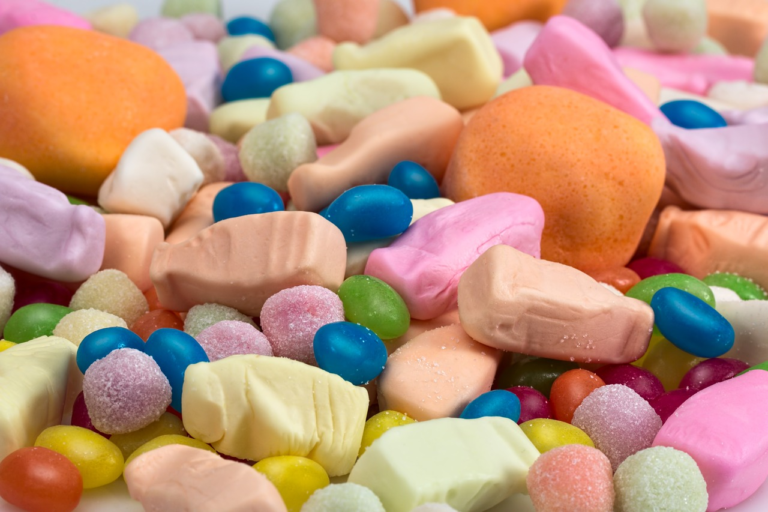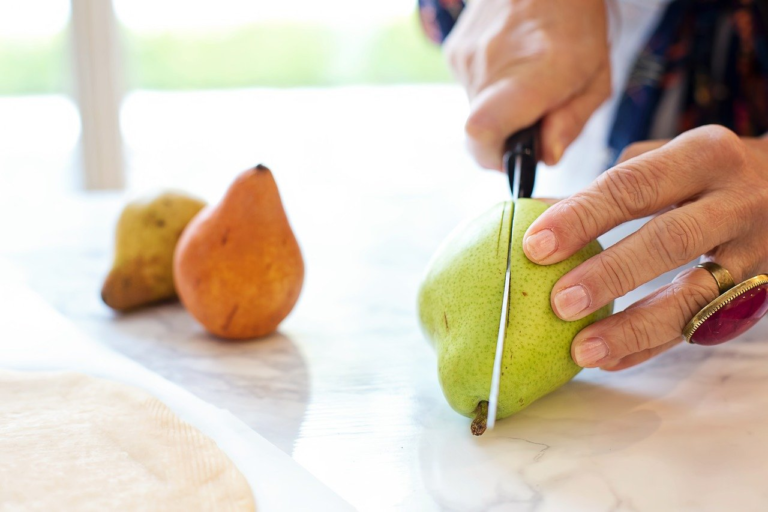Using Technology To Simplify Your Daily Routine As A Diabetic
#ez-toc-container {
background: #f9f9f9;
border: 1px solid #aaa;
border-radius: 4px;
-webkit-box-shadow: 0 1px 1px rgba(0, 0, 0, .05);
box-shadow: 0 1px 1px rgba(0, 0, 0, .05);
display: table;
margin-bottom: 1em;
padding: 10px 20px 10px 10px;
position: relative;
width: auto;
}
.ez-toc-container-direction {
direction: ltr;
}
.ez-toc-list-level-1 a{
font-weight:bold;
}
Table of Contents
1. Understanding Diabetes Management: The Role of Technology in Monitoring and Maintenance
Diabetes management is an ever-evolving field, challenging individuals with the condition to stay vigilant and proactive in their daily lives. This intricate process requires a balance between routine monitoring, proper medication, lifestyle adjustments, and continuous education. With millions of people affected worldwide, understanding the challenges associated with managing diabetes is crucial for improving health outcomes. Over recent years, advances in diabetes technology have played a transformative role in easing these challenges, offering new and effective ways to monitor and maintain the condition.
Managing diabetes involves a comprehensive approach that addresses both physical and emotional aspects. The daily routine often includes careful monitoring of blood glucose levels, planning meals, exercising, and adhering to prescribed medications. These tasks can become overwhelming, necessitating tools that simplify the process. Technology has emerged as a cornerstone in the management of diabetes, providing advanced solutions to enhance the quality of life for many patients.
- Challenges of Daily Diabetes Management:
-
Monitoring Blood Glucose Levels: Regular and accurate monitoring is critical but can be cumbersome with traditional methods.
-
Diet and Exercise: Adopting and maintaining a suitable diet and exercise routine requires dedication and persistence, which can be difficult for many individuals.
-
Medication Adherence: Remembering to take medication on time and adjusting doses based on varying factors can pose significant challenges.
-
Emotional Well-being: Diabetes management is not just physical; it also impacts mental health. Stress and anxiety can affect blood sugar control.
The integration of technology into diabetes care offers innovative tools and resources to streamline these management tasks, minimizing manual effort and maximizing accuracy and efficiency. As a result, patients are better equipped to make informed decisions about their health.
- Essential Diabetic Management Tools:
-
Continuous Glucose Monitors (CGMs): These devices provide real-time insights into blood glucose levels, allowing for timely interventions and more precise insulin dosing. By eliminating the need for frequent finger pricks, CGMs enhance convenience and improve compliance.
-
Insulin Pumps: Offering a close simulation of natural insulin delivery, these pumps enable users to maintain tighter control over their blood sugar levels through customizable settings and basal rate adjustments.
-
Smart Insulin Pens: These pens not only deliver insulin doses but also log and track injection details, ensuring accurate record-keeping and allowing for better management insights.
-
Diabetes Management Apps: Mobile applications designed to record data from various devices, track nutritional intake, and provide educational resources empower patients with vital information anywhere at any time.
These diabetic tools, powered by advancing technology, represent just a snapshot of what the future may hold for diabetes management. The convergence of artificial intelligence, data analytics, and digital health continues to redefine how we approach diabetes care.
In conclusion, leveraging technology in diabetes management not only helps in overcoming the daily challenges faced by those affected but also offers hope for a better quality of life. As innovations continue to evolve, staying informed and adaptive is paramount for both patients and healthcare providers to make the best use of available diabetic tools and diabetes technology.

2. Innovative Apps and Devices: Keeping Track of Your Health Metrics
In recent years, technology has revolutionized the way we manage health, providing innovative solutions that empower individuals to take control of their well-being. For those managing diabetes, keeping track of health metrics has become increasingly streamlined, thanks to a variety of apps and wearable devices designed to simplify blood glucose monitoring and carbohydrate counting. This segment explores these cutting-edge technologies, offering insight into how they can make a difference in daily diabetes management.
As people with diabetes know, consistent monitoring of blood glucose levels is crucial for effective disease management. However, traditional methods can be cumbersome and time-consuming. Enter diabetic apps and wearable devices, which provide seamless blood glucose monitoring and comprehensive health data, making it easier than ever to maintain optimal health. Let’s dive into the world of these innovative solutions, examining the best options available for both apps and devices.
-
Blood Glucose Monitoring Apps
Blood glucose monitoring apps offer a convenient and efficient way to keep track of your glucose levels. Equipped with features that allow for manual input of data as well as automatic syncing with certain types of glucose meters, these apps serve as personal glucose management systems that fit in your pocket.
Some popular blood glucose monitoring apps include:
-
MySugr
MySugr is an app that focuses on simplifying diabetes management. It offers easy logs for blood glucose levels, medications, meals, and other important health metrics. With its intuitive design, users can track their health effortlessly and even earn points for logging data, making it a fun and engaging experience. Moreover, MySugr is compatible with various blood glucose meters, allowing automatic syncing for added convenience.
-
Glucose Buddy
Glucose Buddy is another widely used app that enables users to log their glucose levels, medication intake, and even carbohydrate consumption. The app also features a community platform where users can share their experiences and support one another, fostering motivation and accountability. Additionally, Glucose Buddy offers in-depth graphs and charts to visually represent trends in blood glucose levels over time, helping users identify patterns and make informed decisions about their health.
-
Diabetes:M
Diabetes:M stands out as a comprehensive app designed for managing diabetes-related tasks. In addition to tracking blood glucose levels, this app provides features for carbohydrate counting, meal planning, and even bolus insulin advice. With its robust analytical tools, Diabetes:M offers detailed statistics and reports essential for understanding the effectiveness of treatment plans, which can be easily shared with healthcare providers.
-
-
Carbohydrate Counting Apps
Managing carbohydrate intake is a critical component of diabetes management, and apps dedicated to carbohydrate counting are invaluable tools. These apps simplify the monitoring of carb consumption, ensuring you can maintain a balanced diet while keeping blood sugar levels in check.
Here are some notable carbohydrate counting apps:
-
Carb Manager
Carb Manager is a renowned app that goes beyond basic carb counting. It offers tracking for protein and fat intake, ensuring users have a complete nutritional overview. With a vast database of foods, meal suggestions, and a barcode scanner, tracking carbohydrates is seamless and precise, making it easier for users to adhere to their dietary plans.
-
MyFitnessPal
While MyFitnessPal is widely known as a calorie tracking app, it also excels in helping users keep tabs on their carbohydrate intake. Featuring an extensive food database and a user-friendly interface, MyFitnessPal allows for accurate tracking of nutritional information, supporting effective diabetes management through informed dietary choices.
-
-
Wearable Devices Offering Real-Time Data
Wearable devices have taken personal health management to new heights by providing real-time data and insights. For individuals with diabetes, these devices can offer continuous glucose monitoring (CGM) and provide alerts for high or low blood sugar levels, allowing for prompt and informed decision-making.
Here is a look at some leading wearable devices:
-
Dexcom G6
The Dexcom G6 is a cutting-edge CGM system that continuously monitors glucose levels throughout the day and night. Equipped with a small sensor placed under the skin, the device transmits data wirelessly to a smartphone app or dedicated receiver, allowing users to track trends and receive alerts for significant glucose changes without the need for fingerstick calibration.
-
Freestyle Libre
The Freestyle Libre system offers a user-friendly approach to continuous glucose monitoring. Unlike traditional fingerstick testing, the Freestyle Libre scanner or smartphone app reads glucose levels from a sensor worn on the upper arm. This flash monitoring system provides the latest glucose numbers along with an 8-hour history, offering valuable insights into how activities and foods affect blood sugar levels.
-
With advances in technology, managing diabetes is becoming increasingly efficient and less intrusive. Whether through the use of diabetic apps for detailed tracking and analysis or wearable devices for real-time monitoring, individuals can experience enhanced control over their health metrics. These innovations not only simplify diabetes management but also improve overall quality of life by enabling proactive and informed health management. Embrace these technologies and take charge of your health by utilizing the powerful tools now at your disposal.

3. Streamlining Meal Planning and Nutrition with Digital Assistance
In today’s fast-paced world, digital solutions are becoming indispensable tools for maintaining a healthy lifestyle. For individuals managing diabetes, meticulous attention to meal planning and nutrition is crucial. This segment aims to guide you through the seamless integration of digital technology and meal planning, with a focus on creating tasty, nutritious, and diabetic-friendly meals. By utilizing meal planning apps, refining grocery shopping, and customizing recipes, your kitchen can transform into a haven of health and innovation.
Digital meal planning apps are revolutionizing how we approach nutritious cooking. These apps serve as personal nutrition assistants, helping you develop balanced meal plans that align with diabetic dietary requirements. With built-in features like ingredient-based recipes, nutritional analysis, and even automated grocery lists, meal planning apps take the guesswork out of your kitchen routine.
The Essential Guide to Using Meal Planning Apps for Nutritious and Balanced Diabetic-Friendly Meals
Embarking on a diabetic-friendly nutritional journey begins with understanding how to harness the power of meal planning apps. Here’s a step-by-step guide:
-
Choosing the Right Meal Planning App
The market offers a myriad of meal planning apps. Factors like app functionality, ease of use, and specific diabetic-friendly features should guide your choice.
- Ease of Use: Look for apps with intuitive interfaces and straightforward navigation.
- Nutrition Tracking: Opt for apps that let you track carbohydrates, sugars, fiber, and overall caloric intake essential for diabetes management.
- Custom Recipes: Choose apps that support recipe customization according to dietary and nutritional needs.
-
Setting Up Your Meal Profile
Once you have selected an app, setting up a comprehensive profile ensures your meal plans align with your health goals.
- Input dietary restrictions, such as low sugar or carb consumption requirements.
- Include health metrics like weight, activity level, and medical history for personalized meal suggestions.
-
Developing a Weekly Meal Plan
Mainlining a consistent, structured meal routine is vital in maintaining stable blood sugar levels.
- Plan three meals and two snacks daily to keep glucose levels in check.
- Incorporate diverse food groups to ensure a nutritionally rich diet.
Integration of Technology with Grocery Shopping and Recipe Customization
The magic unfolds when grocery shopping and recipes are tailored to align with your specific dietary needs. Here’s how technology plays a defining role:
-
Smart Grocery Lists
Meal planning apps streamline the grocery shopping process through smart list generation that minimizes impulse buys and promotes the purchase of diabetic-friendly ingredients.
- Automatically populate grocery lists based on selected recipes.
- Ensure lists highlight whole grains, fresh produce, lean proteins, and low-fat dairy.
- Use apps that suggest alternative ingredients for flexibility and cost-effectiveness.
-
Recipe Customization for Diabetes
Traditional recipes can be adapted to fit diabetic dietary requirements using app tools, ensuring each meal is both satisfying and wholesome. Here’s how:
- Replace high glycemic index ingredients with alternatives like quinoa instead of white rice.
- Opt for baking or grilling instead of frying to lower fat content.
- Adjust portion sizes to control carbohydrate intake and support portion awareness.
-
Barcode Scanners
Several apps incorporate barcode scanning to instantly provide nutritional details about products, helping users make informed purchasing decisions.
Utilizing meal planning apps and associated technologies liberates you from the constraints of traditional meal preparations. This digital meal planning journey not only enhances your ability to manage and optimize diabetic nutrition but also fosters a sustainable, healthy lifestyle. Transitioning into this tech-enabled era can profoundly impact personal well-being and culinary creativity, making digital solutions an invaluable ally on your health journey.
4. Enhancing Medication Management with Smart Solutions
In today’s fast-paced world, medication management remains a critical issue for many individuals, families, and healthcare providers. With an ever-increasing number of people relying on prescribed medication to maintain their health and manage chronic illnesses, the need for effective medication management solutions has never been greater. Enter technology: smart pill dispensers and medication reminder apps are revolutionizing the way we handle medication management, ensuring adherence to prescribed treatment regimens.
Medication Management: The Need for Smart Solutions
As healthcare systems around the globe confront the challenge of medication non-adherence, which impacts treatment outcomes and increases healthcare costs, it is clear that innovative solutions are necessary. Smart solutions like smart pill dispensers and medication reminders are at the forefront of technology designed to support individuals in staying on top of their medication schedules, therefore enhancing overall health and wellness.
Let’s explore how these smart solutions are tackling the issue of medication non-adherence:
- Smart Pill Dispensers: These innovative devices are designed to dispense the correct medication doses at scheduled times, minimizing the risk of missed or incorrect doses. Through programmable reminders and tailored dispensary schedules, smart pill dispensers support individuals in complying with their medication regimens.
- Medication Reminder Apps: Accessible via smartphones and other mobile devices, these apps offer customizable notifications to remind users when it’s time to take their medications. By offering alerts, dosage instructions, and refill reminders, medication reminder apps enhance user engagement and adherence.
How Do Smart Solutions Work?
The integration of smart technology into medication management is largely about blending convenience with consistency. Here’s how each solution works to ensure adherence:
- Smart Pill Dispensers:
- Automated Dispensing: These devices often come with pre-loaded medication trays that dispense specific doses at predetermined times. The automation minimizes user errors and the likelihood of double dosing.
- Alerts and Notifications: Many smart pill dispensers include built-in alarms or notifications through connected devices, alerting users when it’s time to take their medication. This significantly decreases the odds of missing a dose.
- Connectivity: Some smart dispensers offer connectivity features such as Bluetooth or Wi-Fi, allowing caregivers and healthcare providers to monitor adherence remotely.
- Medication Reminder Apps:
- Customizable Reminders: Users can set reminders and alerts tailored to their specific medication schedule, receiving notifications on their devices to take doses as prescribed.
- Comprehensive Tracking: These apps often allow users to track their medication history, helping to ensure that doses aren’t skipped and providing valuable data to share with healthcare providers.
- Additional Features: Beyond reminders, some apps include features such as medication identification, interaction alerts, and easy refill ordering, enhancing the overall medication management process.
Benefits of Smart Solutions in Medication Management
The adoption of smart solutions in medication management offers a myriad of benefits, both for individual users and the broader healthcare system:
- Improved Adherence: With automated reminders and scheduled dispensing, users are less likely to miss doses, leading to improved health outcomes.
- Enhanced Safety: By reducing the likelihood of dosing errors, these technologies ensure that patients are taking the right dose at the right time.
- Increased Engagement: Digital tools and devices help engage users in their treatment plans, fostering a proactive approach to health management.
- Reduced Healthcare Costs: Improved adherence can lead to fewer emergency visits and hospitalizations, reducing overall healthcare expenses.
Conclusion: The Future of Medication Management
As the world of medical technology continues to evolve, the potential for smart solutions in medication management will only expand further. Smart pill dispensers and medication reminder apps are just the beginning; future innovations may include more sophisticated technologies adapted to individual needs and integrated into broader healthcare platforms. As we embrace these smart solutions, we move closer to a healthcare system that not only cures but cares comprehensively, ensuring that medication management becomes seamless, safe, and more effective for all users.
In conclusion, the integration of smart technology stands at the forefront of advancing medication management, bridging gaps in adherence and paving the way towards healthier populations. Whether through smart pill dispensers or savvy medication reminder apps, technology offers a promising path for individuals seeking to achieve their best health outcomes through reliable medication adherence.







